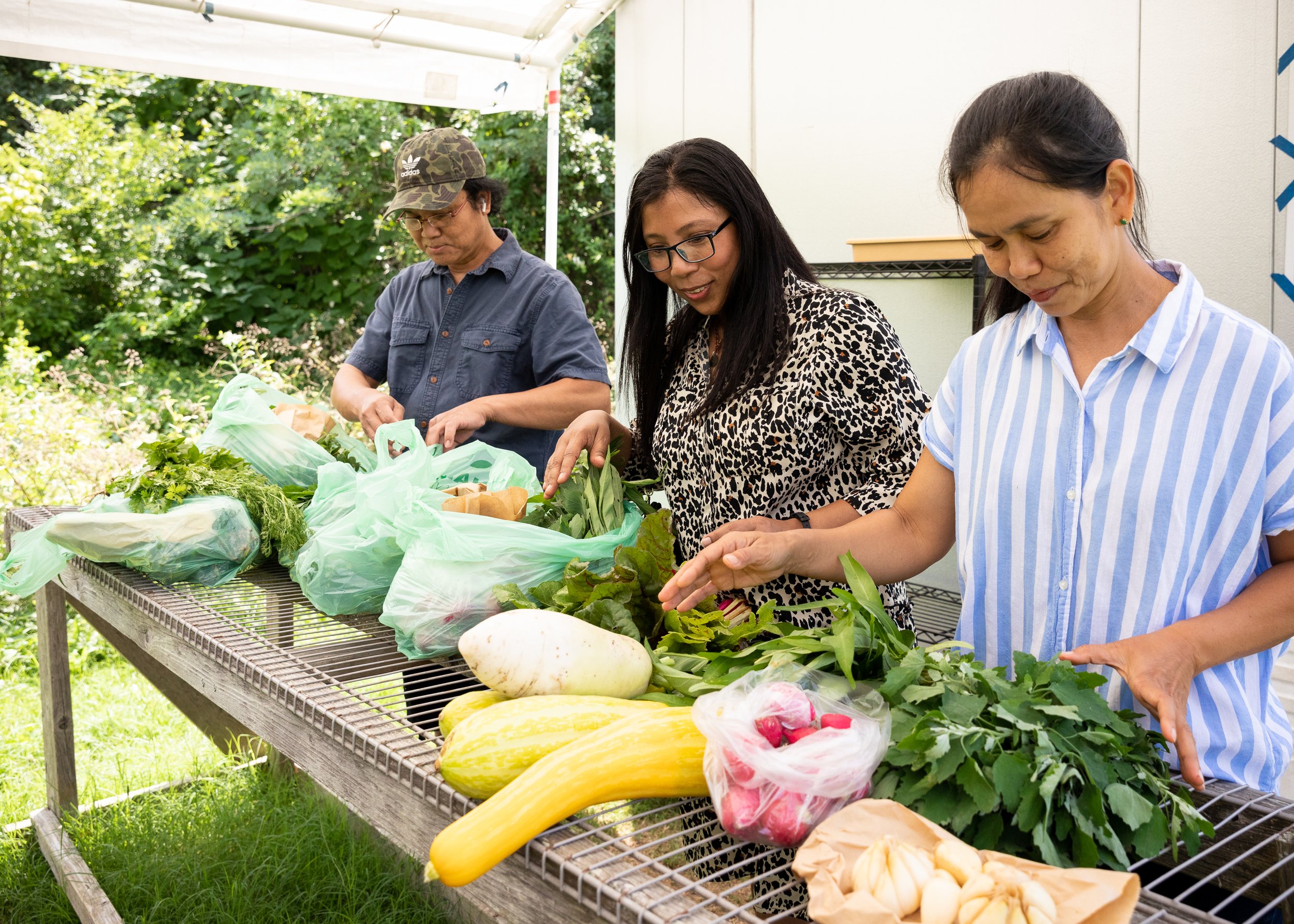By Hanes Motsinger, Chief Program Officer
Have you ever imagined what it would be like to live in Nashville if there was food growing everywhere? In every neighborhood, at city parks, churches and public offices, vacant lots, schools, your neighbor’s yard, and everywhere in between?
And, what if these urban gardens and farms helped alleviate food insecurity, mitigated some of the negative effects of climate change like heat islands and loss of wildlife habitat, while also serving as important sites of social connection and emotional well-being?
At our current community gardens and urban farms in North and South Nashville and Antioch — including the Community Farm at Mill Ridge, the McGruder Community Garden, and the Growing Together Farm — we imagine and work towards this future everyday. We do this by connecting more than 100 gardeners and farmers and hundreds of volunteers at these sites with the land, resources, education, and relationships they need to grow food for themselves, their families, and/or local markets.
Today, these three sites are nearly at their capacity. At the Community Farm at Mill Ridge, for example, we have a waitlist of more than 30 individuals who would like to have a garden plot to grow food for themselves. While we added new garden plots to the site this year, we are still unable to meet the full demand for growing space. Meanwhile at the Growing Together Farm, farmers cultivate the entire available growing area, leaving little opportunity for expanded production or new farmers to participate. At the same time, many different organizations, churches, institutions, and individuals are reaching out to us seeking support in developing new community gardens on little pockets of land in their own neighborhoods.
Over the past few months, these circumstances have affirmed our suspicion that there is a significant and growing demand for community agriculture in our city. This has prompted us to think about how we might build on the successes and learnings from our current gardens to support the creation of a citywide network of thriving community gardens and urban farms. As 2024 comes to a close and we look ahead to 2025, we’re excited to announce that we are embarking on a journey to transform our current network of three gardens and farms into a citywide hub-and-spoke model of community agriculture.
Inspired by the model of Denver Urban Gardens, which coordinates a network of 200 gardens across 37 acres in the Denver metro area, our new model of community agriculture will prioritize working in partnership with other organizations to achieve the following goals: expand land and resource access for small-scale gardeners and farmers across the city, increase access to garden education and skill-building through curated, publicly accessible educational offerings, strengthen community engagement and ownership over community garden spaces, and provide neighborhood community gardens with the ongoing administrative and coordinating support they need to thrive over time.
As we begin 2025, we’ll slowly launch this model by continuing to invest in our current gardens while also collaborating with three local churches to determine how we can transform a dormant community garden, a vacant lot, and a current production garden into vibrant, community-led growing spaces. Through these pilot partnerships, we are focusing on co-creating the operational and administrative processes we’ll need to grow and support this network over time. Meanwhile, we are also developing a garden leader training program to ensure that every garden space is supported by a team of dedicated community members who deeply understand the needs and opportunities of different gardens. We are also investing in expanding our outreach and communication efforts to ensure that residents across the city are aware of opportunities to get involved.
Through each of these efforts, we are excited to collaborate with our community and partners to bring our vision of the future to life, a vision wherein neighbors are working together and alongside one another to grow, cook, and share nourishing food in every corner of the city. After all, if we’ve learned anything through our years of experience in community gardening, it’s that community gardens thrive when they’re established and maintained in community!





